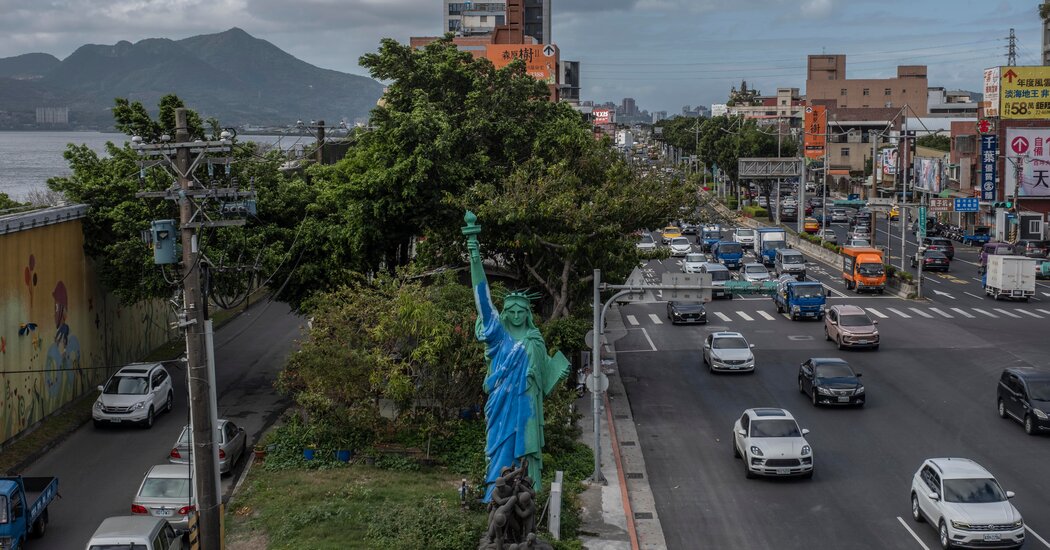
The collection of American memorabilia, vast and well-lit in a busy area of City Hall in the southern Taiwanese city of Tainan, reflected decades of eager courtship. Maps highlighted sister cities in Ohio and Arizona.
There was a celebration of baseball, an American flag laid out on a table. And in the middle of it all, a card sent to the United States that seemed to reveal the thinking of Tainan, a metropolis of 1.8 million, and nearly all of Taiwan.
“Together, stronger,” it said. “Solidarity conquers all.”
The message was aspirational — a graphic illustration of profound insecurity. Taiwan is a democratic not-quite nation of 23 million, threatened by a covetous China, with a future dependent on how the United States responds to the ultimate request: to fight the world’s other superpower if it attacks and endangers the island’s self-rule.
Now more than ever, the fraught psychology of that predicament is showing signs of wear. With China asserting its claim to the island with greater force, and the United States increasingly divided over how active it should be in global affairs, Taiwan is a bundle of contradictions and doubts, less about its own government’s plans or even Beijing’s than the intentions of Washington.
We are having trouble retrieving the article content.
Please enable JavaScript in your browser settings.
Thank you for your patience while we verify access. If you are in Reader mode please exit and log into your Times account, or subscribe for all of The Times.
Thank you for your patience while we verify access.
Already a subscriber? Log in.
Want all of The Times? Subscribe.

